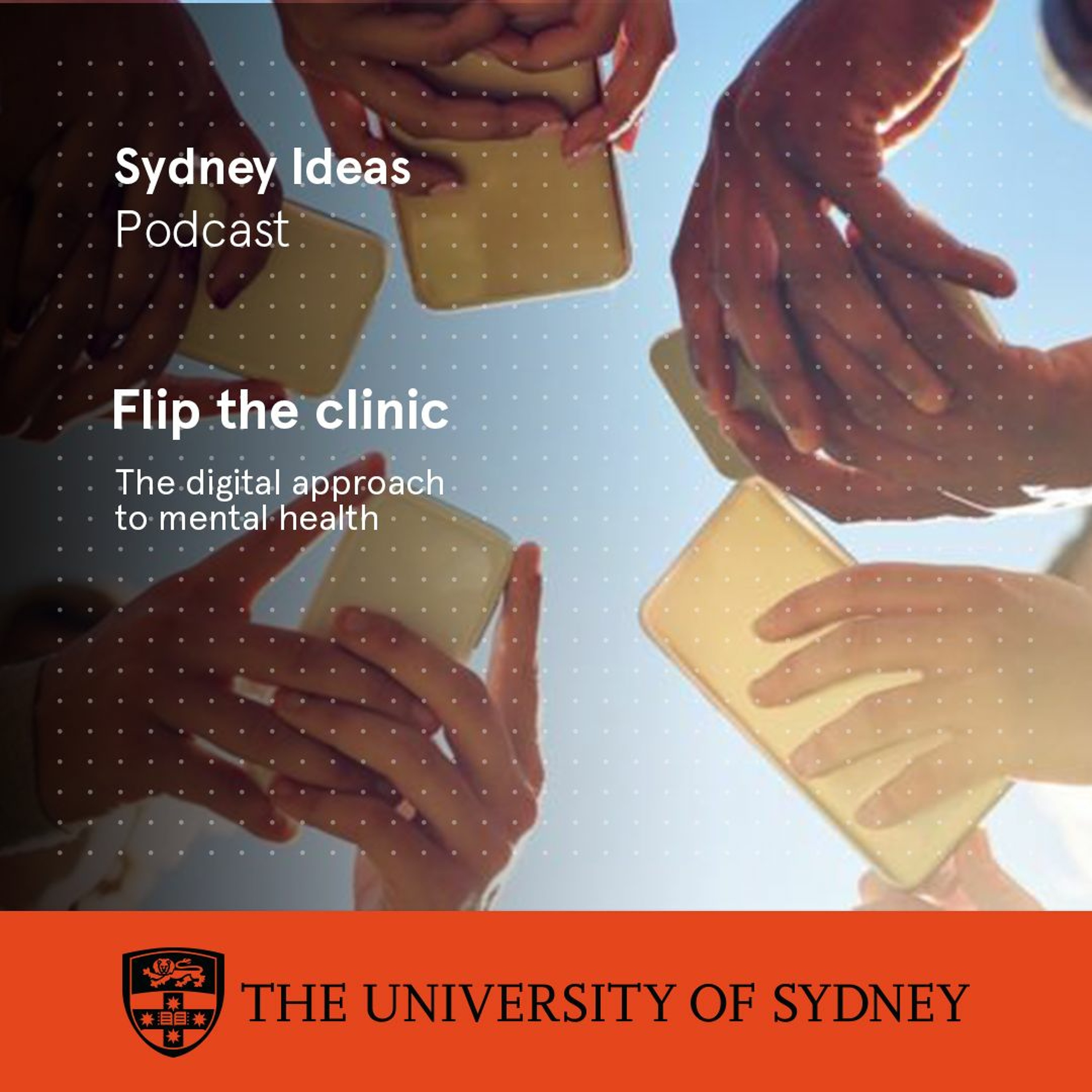
Flip the Clinic: the digital approach to mental health support (8 April 2020)
2020/4/14
Sydney Ideas
Frequently requested episodes will be transcribed first
Shownotes Transcript
As the COVID-19 situation unfolds, now is the time to rethink how we do things, during this pandemic and beyond. What could a digital present and future look like for mental health?
Hosted by The University of Sydney’s Brain and Mind Centre and facilitated by ABC broadcaster Dr Norman Swan, this conversation will ask how can the mental health system to best support communities and consider a mental healthcare transformation, beyond tele to DigiHealth.
For more information, including the transcript, speaker slides, and useful resources, visit the Sydney Ideas website: https://bit.ly/3a3ZRUo
WHAT WE COVER – Professor Ian Hickie: overview of the landscape (00:01:00) – Dr John Torous: international perspective, research at Harvard (00:09:00)
- Samuel Hockey: user perspective and co-design, and lived experience (00:21:00) – Professor Frances Kay-Lambkin: access and connection (00:28:00) – Julie Sturgess: North Coast Primary Health Network case/model; how its adopted technology (00:34:00) – Dr Peggy Brown: digital standards (00:38:00) – Professor Pat Dudgeon: insights on Indigenous populations (00:42:00) – Dr Michael Millard: digital platforms and THIS WAY UP (00:45:00) – Professor John Mendoza: the scene in Adelaide (00:47:30) – Dr Angelo Virgona: unique opportunities (00:52:00) – Dr Michael Moore: what are the risks related to telehealth (00:55:00) – Dr Sebastian Rosenberg: barriers and inequities around access (00:58:00) – John Feneley: meeting needs and demand in the long-term (00:60:00) – Julius Ajayi: use of digital platforms with patients in mental health care (01:04:00) – Associate Professor Elizabeth Scott: how she is flipping her specialist clinic with technology (01:06:30) – Dr Haley LaMonica: use of technology by older persons (01:09:30) – Jason Trethowan: waitlists and digihealth (01:11:30) – Professor Frances Kay-Lambkin: examples of young people and peer support online programs (01:15:00) – Dr Danny Rock: insights into PORTS project as an example of digital transformation (01:17:00) – Professor Ian Hickie: key ideas and big questions to think about (01:22:00)
